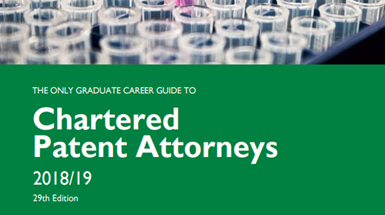Thoughts on the Postgraduate Certificate in Intellectual Property course
June and July this year are quite significant months in my entire journey as a trainee patent attorney. The former marks an end to a Postgraduate Certificate in Intellectual Property course at the Bournemouth University, while the latter is a month during which the results from both the Bournemouth course exam and EQE exams are published.
The Bournemouth course is intended to lay foundation knowledge required to work with various types of intellectual property. It also exists as an alternative to CIPA foundation exams – on completion of the course, students are granted exemption from FC1-FC5. Units include topics such as patents, trade marks, designs, copyright and UK law. Over the course of several intensive Thursday-Saturday weekends, we got to learn from academics and practitioners in the field. The bulk of work however had to be done at home, as multiple written assignments and e-activities had to be submitted at regular intervals, ensuring that students were prepared enough for the lectures and that the post-lecture knowledge was sufficiently internalised.
My impression was that the content of the course would be quite familiar to a trainee with 1 year+ experience in the profession. However, to a fresh graduate starting in IP, a time for a fair bit of studying in the evenings and during weekends had to be reserved. In any case, the course is not to be taken lightly and can easily bite off a fair chunk of trainee’s off-work time. The exam in June tests trainee’s knowledge on patents & trade marks, whereas designs, copyright and UK law are covered by marked online submissions.
I found that an additional benefit of the course is the opportunity to network with academics and practitioners in the field who were giving lectures, as well with students who come from various backgrounds - this year, for example, there were a few people from Germany. In the evenings following lectures, we often had an opportunity to unwind and socialise in a few of quite pleasant Bournemouth food & drink venues.
Although a few things about the course could be improved here and there, my overall experience is positive and the course remains something worth considering at an appropriate point of a trainee’s career.




